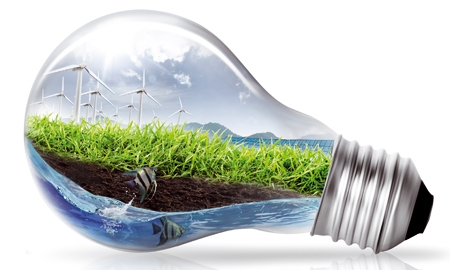Indonesia is home to approximately 40% of the world’s geothermal energy reserves, possesses 75,500 megawatts of estimated hydropower resources and boasts 4.80 kWh per m2 per day in solar power potential. In light of this, the government target of achieving 6.7 gigawatts of installed renewable energy capacity by 2025 seems realistic.
However, Indonesia’s transition towards renewables is not currently occurring at the rate required to meet this target. This underperformance is due to the insufficient extent to which the government has attempted to incentivise investment in the country’s renewable resources. Rahmat Gobel, the Chairman of the Indonesian Renewable Energy Society (METI), put it down to a lack of awareness. “Political will is required in order for Indonesia to benefit from its abundant renewable energy potential. The government must understand the importance of renewable energy and undergo a paradigm shift in mindset away from its current focus on oil.”
While progress has been slow, efforts have been made to transform the regulatory framework. Law no.30/2007, for example, was initiated in an attempt to reduce Indonesia’s dependence on imported refined oil whilst boosting the use of alternative energy sources, including renewables. Regarding geothermal in particular, Finance Minister Agus Martowardojo signed a decree in August last year that guaranteed state electricity company PLN’s financial ability to fulfil its obligations relating to power purchase agreements with private power plants, with the price set at 9.7 cents per kWh. This gesture was bolstered in April of this year by the establishment of a geothermal fund facility for regional administrations and mining license holders, as well as an announcement made by the government committing EUR 299 million to finance the construction of geothermal power plants.
International investors have been hesitant to fully immerse themselves in Indonesia due to a plethora of factors ranging from high initial investment costs to conflicting government jurisdictions – an example of the latter being that 60% of Indonesia’s geothermal reserves sit below land protected by the Ministry for Forestry. METI argue that this caution will be significantly reduced when a feed in tariff (FiT) policy is more effectively implemented for renewables. Such a policy, which theoretically involves setting a guaranteed price at which power producers may sell their renewably generated electricity to the grid, would ensure investors receive guaranteed grid access, long-term contract stability and purchase prices that are both logical and fair. Due to the fact that the cost of electricity production varies region by region, the tariff must be decentralised, and assessed in line with the scale of individual projects to incentivise smaller projects that are less economical.
Germany could be seen as both an example and a partner for the realisation of this policy. Due to the support shown for renewables in the electricity feed-in law of 1991 and the subsequent ‘Renewable Energy Sources Act’ (EEG) passed in 2000, the share of domestic electricity usage held by ‘green’ solutions has been impressive. Contributions from wind energy grew from 1.3% in 2000 to 6.3% in 2008. As part of Chancellor Merkel’s recent push to fill the ‘nuclear void’, a further 895 wind turbines were installed in 2011 with a collective capacity of 2,007 megawatts.
This represented a 30% year-on-year growth in wind energy-related installation.
As regards solar power – an area of clear potential for Indonesia due to the nature of its climate – Germany obtained 0.6% of its electricity from PV technology in 2008, which has increased to an estimated 4% this year. What’s more, a world record was established on May 25 2012 when 22.15 gigawatts of electricity were passed onto the grid, meeting almost one third of the country’s electricity demand at that precise moment. While the feed-in tariff is the subject of lively debate – with opposing parties suggesting the FiT policy for solar power adds an extra 2 euro cents per kWh to German electricity prices – one cannot deny its success in supporting the use of renewable energy sources, with approximately 20% of electricity generated through such means in 2011 (DECC 2012).
“I hope that we are able to strengthen our bi-lateral relationship with Germany within the sphere of renewable energy,” says Mr Gobel. “The transfer of technology from Germany could be central to our future economic growth.”
The German Federal Ministry for Economic Cooperation and Development has already displayed its commitment to strengthening ties in this area, commissioning a joint project between the Directorate General for Electricity and Energy Utilisation within the Indonesian Ministry of Energy and Mineral Resources, and the German Society for International Cooperation (GIZ). The ‘Mini Hydro Power Project for Capacity Development’ (MHPP²) seeks to implement micro hydropower technology as a means of bringing electrification to rural communities remote from the national power grid. Furthermore, the three-day ‘German Indonesian Renewable Energy Days’ programme was jointly organised by EKONID and GIZ in October last year as part of the ‘JERIN’ celebrations, to bring public and private players together for a discussion regarding potential solutions to current policy and finance-related issues.
With the introduction of more consistent policies within the real sector and greater collaboration with the German government and energy sector, Indonesia has the potential to develop strategic industries in the fields of renewable energy and energy efficiency technologies that could seek to emulate German quality and challenge Chinese ‘price competitiveness’, while making renewable energy more financially viable.

0 COMMENTS